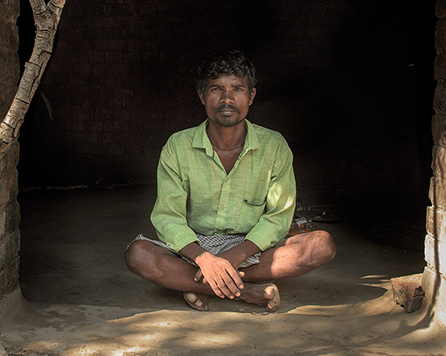INSPIRATION TO YOUR INBOX
We are so excited to connect with you! Join our email list for more insight on how we can WIN the fight against modern day slavery together!
By signing up you agree to Voices4Freedom’s Privacy Policy.
Photo Credit: Miranda Turin
One of the most important things you can do is be educated and aware of the reasons why people are enslaved and how to identify someone who is enslaved so you can report it.

Photo Credit: Miranda Turin
Slavery occurs when one person completely controls another person, using violence or the threat of violence, to maintain that control, exploits them economically and they cannot walk away.
The Trafficking Victims Protection Act of 2000 (TVPA) defines slavery as “The recruitment, harboring, transportation, provision, or obtaining of a person for labor or services, through the use of force, fraud or coercion for the purpose of subjection to involuntary servitude, peonage, debt bondage or slavery.”
These are real slaves by the harshest definitions. They are trapped in brothels, factories, mines, farm fields, and restaurants. More than half are women and children.
People become bonded laborers by taking, or being tricked into taking, a loan that they are unable to ever pay off. Some bonded laborers receive basic food and shelter as “payment” for their work, but due to penalties and exorbitant interest rates, no matter how hard they work they are never able to pay off the loan, which can even e passed down to their children. –International Labor Organization (ILO)
People who are illegally recruited by individuals, businesses or governments and forced to work – usually under the threat of violence or other penalties. –ILO
Predominately effects women and girls who are married without choice, forced into lives of servitude, often accompanied by physical violence, and who have no realistic choice of leaving the marriage. Marriage involving children under 18 years old remains a widely culturally accepted practice in many corners of the globe. Estimates suggest that 11 per cent of women aged between 20 and 24 worldwide were married before reaching the age of 15 –UNICEF 2012
Involves the transport of any person from one area to another for the purpose of forcing them into slavery conditions, including transporting people between countries and within the borders of a state. –Trafficking Victims Protection Act (TVPA) of 2000
The unlawful recruitment or use of children—through force, fraud, or coercion—by armed forces to serve as combatants or for other forms of labor. Some child soldiers are also sexually exploited by armed groups. Perpetrators may be government armed forces, paramilitary organizations, or rebel groups. –Trafficking Victims Protection Act (TVPA) of 2000
People forced to work 10-to-16 hours a day or more for little-to-no pay. The employer uses force, fraud and/or coercion, usually the threat of deportation and/or document confiscation, to maintain control over the worker and to cause the worker to believe that he or she has no other choice but to continue with the work. –ILO
Victims work as: domestic servants; farm, factory, and restaurant laborers; strippers, hostesses, and sex slaves; sales crews, peddlers, and beggars; hotel and tourist industry workers.
It is reported that 50 million slaves are in the world today. 403,000 of them are in the United States. (Global Slavery Index 2018)
Modern slavery is most prevalent in Africa, Asia, and the Pacific Region (2018).
Of the 600,000–800,000 people trafficked across international borders each year, more than 70% are female and half are children.
As many as 14,500–17,500 men, women, and children are trafficked into the United States each year. (US Department of State, 2005)
Human trafficking is estimated to be the third-largest international crime industry, ranking behind illegal drugs and arms trafficking. (United Nation’s Office on Drugs and Crime)
Human trafficking is the fastest-growing criminal enterprise in the 21st century—a $32 billion industry. Of that, $15.5 billion is made in industrialized countries. (ILO)
The United States is one of the top three destination points for enslaved/trafficked victims, along with Japan and Australia.
Perhaps one of the most important things you can do is be educated and aware of the reasons why people are enslaved and how to identify someone who is enslaved so you can report it.
Photo Credit: Miranda Turin
If you have reason to suspect that someone is a victim of slavery / human trafficking, DO NOT INTERVENE. Intervening can prove harmful to the victim and yourself. Please take the following actions to report a tip:
The NHTRC is a national, toll-free hotline, available to answer calls and texts from anywhere in the country, 24 hours a day, 7 days a week, every day of the year. Interpreters are available for up to 170 different languages for those callers that require interpretive services. All calls are strictly confidential.
Photo Credit: Miranda Turin
Give where it’s needed most. Your donation will help eradicate slavery in our lifetime.
You can do anything to help raise any amount of money to end slavery — do it on your own or start a team. The possibilities are endless!
Your gift alone will help build a School4Freedom and bring an entire village to freedom. Forever.
We are so excited to connect with you! Join our email list for more insight on how we can WIN the fight against modern day slavery together!
By signing up you agree to Voices4Freedom’s Privacy Policy.